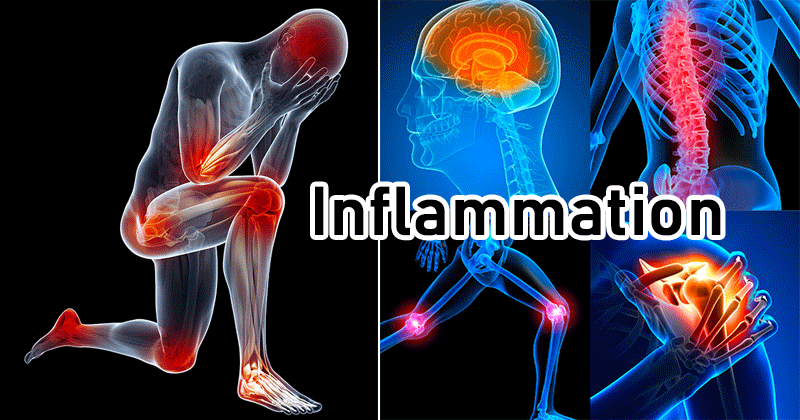
We have all heard the old saying “you are what you eat”. Well we are here to tell you that it is true! The human body is made up of carbohydrates, fats, and proteins. These macronutrients are what build and fuel our cells. That means what we choose to eat will determine how cells, tissues, or entire organ systems function. One of the best examples of this system at work would be which fats we choose to eat and how they affect inflammation.
First let’s have a little ‘intro to biology’ review. Every cell in your body is wrapped up in a membrane. This cell membrane is made up of fat which is built using the fat that you consume in your diet! While there are many different fats, there are two types we will be specifically discussing. These are Omega-6 and Omega-3 fatty acids. When a cell is damaged, the fats in the membrane spill out. If the cell membrane contains Omega-6 fatty acids, it will trigger the inflammatory process.
The word inflammation has received a bad name, but some inflammation is not a bad thing; inflammation is a key step to the natural healing process. This means that having some Omega-6 fatty acids is important but too much inflammation is the cause of many chronic conditions. The key is keeping a proper balance of Omega-3s and Omega-6s.
If the cell membrane contained some Omega-3 fatty acids instead, the inflammation process would be inhibited. Inflammation occurs because an enzyme named COX breaks down Omega-6 fatty acids in damaged tissues. The break down releases chemicals that cause inflammation to occur.
NSAIDs (Non-Steroidal Anti-Inflammatory Drugs) such as, Advil, Motrin, ibuprofen, inhibit the COX enzyme and therefore prevents inflammation. The problem with these medications is that the COX enzyme is used all over the body, especially in the digestive system. This is why overuse of these NSAIDs can lead to stomach and digestive problems.
By altering your diet to consist of more Omega-3 fatty acids, we can reduce inflammation by inhibiting the COX enzyme at the site of injury instead of throughout the body. If you are interested in transitioning to an anti-inflammatory diet, a good first step would be to work on your Omega-6 to Omega-3 ratio. A simple way to do this is changing your animal protein source to a fish protein once per week. If you are a vegetarian or are allergic to seafood, there are Omega-3 extracts that don’t contain any animal products.
There are many studies that show reduced general inflammation, reduced joint pain, improved inflammatory bowel symptoms, and more by improving the Omega-6 to Omega-3 ratio. Patients go to chiropractors in Rochester, NY complaining of these issues daily. Give us a call at 585-321-3200 and schedule your free consultation with our Clinical Nutritionist to find out if making these changes will help you with your health goals!
Image Source: https://microbenotes.com/inflammation/



